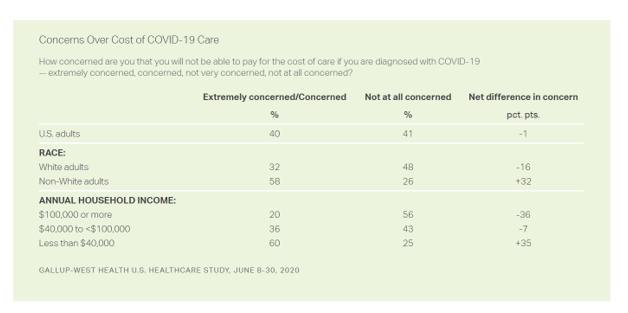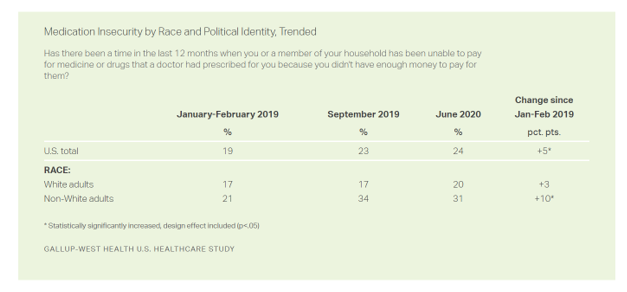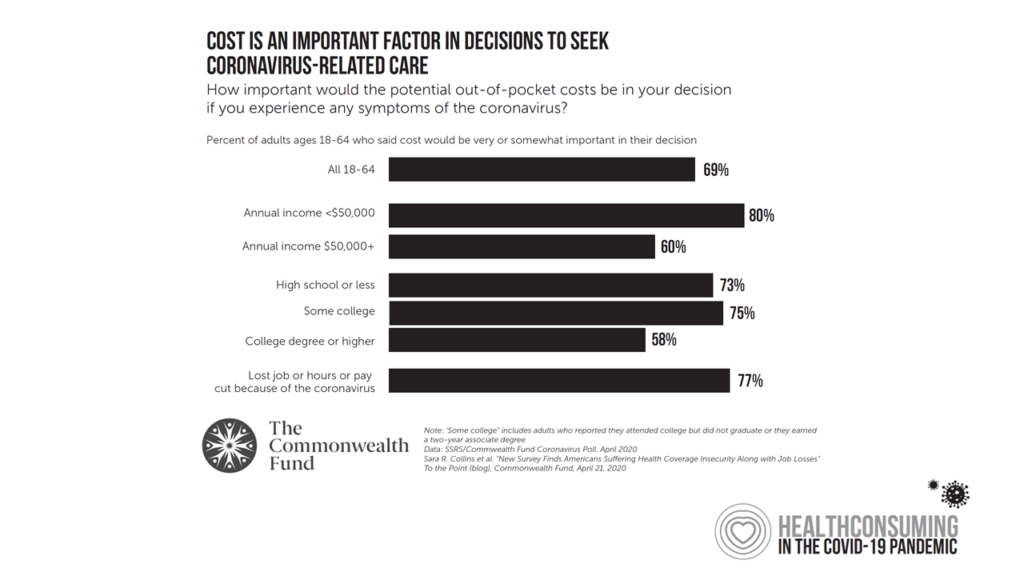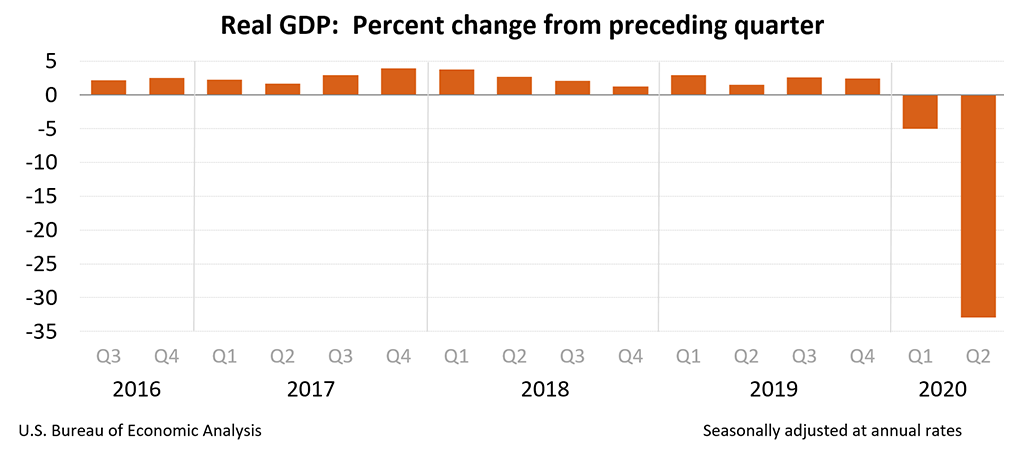Into the sixth month of the coronavirus pandemic in the U.S., it’s clear that COVID-19 has wreaked a greater mortality and morbidity impact on people of color than on white adults.
 A new Gallup-West Health poll found that the coronavirus also concerns more non-white Americans than whites when it comes to the cost of health care and medicines to deal with the effects of COVID-19.
A new Gallup-West Health poll found that the coronavirus also concerns more non-white Americans than whites when it comes to the cost of health care and medicines to deal with the effects of COVID-19.
Considering the cost of COVID-19 treatment, across all U.S. adults, 40% of people are concerned (extremely/concerned), and 41% are “not at all concerned.”
Broken down by race, there is a stark difference in levels of concern about the cost of COVID-19 care:
- 32% of white adults are concerned, compared with,
- 58% of non-white adults.
Conversely, 48% of white adults are not at all concerned about the cost of COVID care, while only 26% of non-white people are not concerned.
 Another aspect of patients’ health care financing is medication costs, which the poll also assessed. Once again, there was a statistically significant difference in how white adults experienced the cost of medicines compared with the experience of non-white people:
Another aspect of patients’ health care financing is medication costs, which the poll also assessed. Once again, there was a statistically significant difference in how white adults experienced the cost of medicines compared with the experience of non-white people:
In June 2020, overall 24% of Americans said they or someone in their household had been unable to pay for drugs a doctor had prescribed, broken down by:
- 20% of white adults, and,
- 31% of non-white adults.
Both whites and non-whites dealt with greater burdens of ability to pay for prescribed drugs from January-February 2019 to June 2020; however, more non-white adults than white people felt the sting of drug costs over the eighteen month period, an increase of 3 percentage points for the white population versus 10 more percentage points for non-whites.
Gallup and West Health polled 1,017 U.S. adults 18 years of age and older by telephone in June 2020.
 Health Populi’s Hot Points: In the thick of the pandemic in April 2020, most U.S. adults were concerned about the out-of-pocket costs of care for treating symptoms of the coronavirus — across higher or lower incomes, education levels, age, the Commonwealth Fund learned. Those majority-statistics are shown in the bar chart, whose top-line was that cost was an important factor in health consumers’ decisions whether or not to seek coronavirus-related medical care.
Health Populi’s Hot Points: In the thick of the pandemic in April 2020, most U.S. adults were concerned about the out-of-pocket costs of care for treating symptoms of the coronavirus — across higher or lower incomes, education levels, age, the Commonwealth Fund learned. Those majority-statistics are shown in the bar chart, whose top-line was that cost was an important factor in health consumers’ decisions whether or not to seek coronavirus-related medical care.
The pandemic has revealed many cracks in the U.S. health care system, from public health gaps to the racial gaps of health disparities between people of color dying at a much greater rate than white people in America.
The Gallup-West Health poll reveals yet another lens on the differences in health services for people of color in the Age of Corona: that is, the patient experience of cost for both medical services and prescription drugs.
 Today’s news that the U.S. economy contracted by 33% on an annual basis was accompanied by more than one million job losses filed. In America, health insurance coverage is tied to employment, so some portion of health citizens who filed for unemployment will fall into the uninsurance rolls, unable to afford buying into COBRA plans when offered or without an ability to buy a plan in a state that did not expand Medicaid under the Affordable Care Act.
Today’s news that the U.S. economy contracted by 33% on an annual basis was accompanied by more than one million job losses filed. In America, health insurance coverage is tied to employment, so some portion of health citizens who filed for unemployment will fall into the uninsurance rolls, unable to afford buying into COBRA plans when offered or without an ability to buy a plan in a state that did not expand Medicaid under the Affordable Care Act.
People of color have been impacted hard in the pandemic’s Great Lockdown and subsequent recession, which will exacerbate the health care and medicine cost divide revealed in the Gallup-West Health study. The solution to this (hopefully) short-term challenge will be to address health security through the next iteration of a CARES Act to help people through the pandemic’s rough economic road to recovery. In the longer term, assuring all U.S. health citizens insurance coverage, regardless of job category, income, race, or ethnicity, would help heal the gap between health insecure people and those without access to primary care, preventive services, and the safety net for COVID-19 medical care – gauged as high as $ 45,000 for uninsured people.
